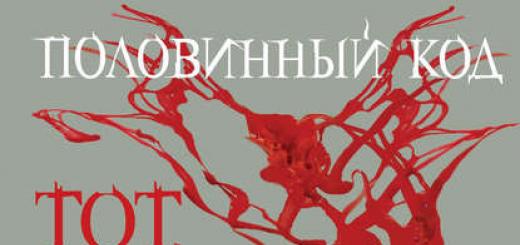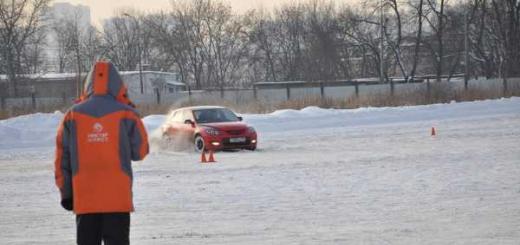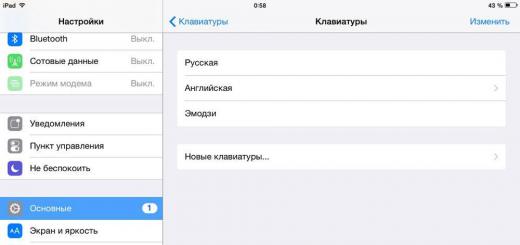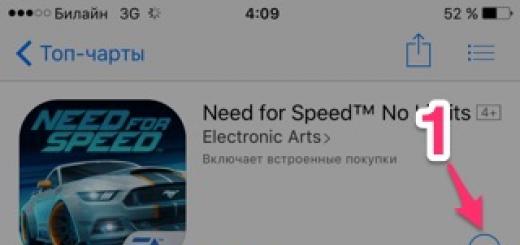One of the main issues of cultural and political life in Ukraine, of course, is the issue of recognizing the Russian language as the state language. Politicians who call themselves democrats, with ridiculous persistence, oppose the implementation of international norms, according to which the “great and mighty”, as native to more than half of the citizens, is simply obliged to have a sovereign status. Moreover, there are widespread attempts to discredit the Russian language as a “Finno-Tatar dialect”, opposing it with supposedly ancient and truly Slavic Ukrainian language, better known as "mova". Therefore, one should once again turn to the history of the appearance of this dialect.
When the well-known philosopher Prince Yevgeny Trubetskoy called "Mova" a "provincial provincial dialect", he was right and wrong at the same time. Wrong, because this definition sounds insulting, and right in everything else. Like the very idea of Ukrainianism, “mova” is an artificial phenomenon, not organic to the history of Western Russia, a kind of philological homunculus. The Ukrainian language was created by a group of Lviv (Lemberg) scientists and writers using Austrian money in the second half of the 19th century. The authorities of Austria-Hungary in Galicia, which then belonged to them, actively fabricated the “Ukrainian” nationality in order to reduce Polish and Russian influence. Thus, the appearance of this language is, first of all, a fact of politics, not of culture. New language was created on the basis of the Western Russian dialect, in which there were many Polonisms and Latinisms, with the expectation of maximum demarcation from the Russian language. But in the 40s of the same XIX century, the famous Slavist Yuri Venelin, a Carpathian Rusyn by origin, considered it necessary to overcome linguistic differences, which he reasonably considered the result of the long rule of foreigners over most of the Slavic lands.
Moreover, the newly invented language turned out to be inaccessible to the Ukrainian common people, which the leaders of Ukrainianism themselves honestly admitted.
So N. Pleshko recalled how during the civil war he got to the congress of justices of the peace. The chairman “began to lead him in the Ukrainian language, the members of the court made reports, the defense lawyers began to speak Ukrainian. My place was near the audience, which consisted mainly of peasants, and they began to exchange glances at each other in bewilderment, and one of them, bending over to a neighbor, said: “Petro, and Petro, why did these gentlemen show up, chi sho?” Born and spent his youth in Kyiv, the singer and poet Alexander Vertinsky in Stalin’s time, when everything Ukrainian was allegedly persecuted, wrote angrily to his wife: “I’m racking my brains over the Ukrainian text, vaguely guessing the content, because there were no such words before, and now they“ create ” "Ukrainian language", littering it with all sorts of "Galicisms", Polish-Transcarpathian quirks, and no one in Kyiv can speak this language and does not know how!
In addition, this “wonderful” invention tore its adherents away from the entire layer of ancient Russian literature, including that created in Little Russia. A particularly tragicomic situation developed when trying to perform divine services in the "Move" in the "Ukrainian Church". Instead of "Our Father" it was necessary to read "Our Father"! How not to remember the “White Guard” by Mikhail Bulgakov: “What language do they serve, son? On the divine, grandmother.
The authors, declared classics of the newly-minted Ukrainian literature, also hardly fit into the Procrustean bed of its otherness in relation to the great Russian culture. Even Taras Shevchenko, a Ukrainian peasant by origin, kept his most intimate notes, including his diary, in Russian.
It is impossible to bypass the pragmatic component in the emergence of a special literature of the Little Russian Newspeak. Establish yourself in big Russian literature XIX century, after Pushkin, Lermontov, Gogol, of course, it was very difficult. It is another matter, writings in all kinds of dialects, which only acquired writing. Moreover, the Moscow and St. Petersburg public was very sympathetic to such experiments. After all, the only way they could get at least some fame was Marco Vovchok or Lesya Ukrainka.
Even the great Gogol, who arrived in the capital with Hans Küchelgarten, became famous after his Ukrainian stories. And how much they fiddled with Shevchenko in Moscow and St. Petersburg, molding a “regional genius” out of him!
No wonder Pigasov, one of the smartest characters in Turgenev's Rudin, argued, “if I had extra money, I would now become a Little Russian poet. - What else is this? Good poet! objected Darya Mikhailovna, “do you know Little Russian?” - Nothing; yes it is not needed. How not to? - Yes, it's not necessary. One has only to take a sheet of paper and write at the top: Duma; then start like this: Goy, you are my share, share! Or: Sede Cossack Nalivaiko on the mound; and there: On the mountain, on the green, on the mountain, on the mountain, gop! gop! or something like that. And it's in the hat. Print and publish. The imperial government, not without the influence of the famous note by M.V. Yuzefovich, who presented all Ukrainophilism as the fruit of the “Polish intrigue”, banned the use of the Ukrainian language (Emsky Decree of May 18, 1876). By the way, at the same time, translations into Ukrainian of Gogol's Taras Bulba were discovered, where the word "Russian" was "translated" as "Ukrainian" (a common lie). The imperial decree, however, was not actually executed, but gave the "movie" the taste of the forbidden fruit. On the other hand, the Bolsheviks pursued an active policy of Ukrainization, forcing the unfortunate inhabitants of Little Russia to learn this very “grae voropae”. However, all efforts to create at least some serious Ukrainian-language literature failed.
It is even strange that not only Platonov or Sholokhov, but even Yevtushenko did not take place in the field (albeit meager) of Little Russian literature.
Perhaps that is why the current fighters for Ukrainian culture are so fond of looking for Khokhlak roots in Voloshin, Akhmatova, Mayakovsky and other classics. Ostap Vishnya and Pavlo Tychina can't get by.
Actually, I am not at all against the Ukrainian language, although in some places it seems to be a parody of Russian. In Soviet times, it was assimilated by a significant part of the inhabitants of the Ukrainian SSR and entered the general cultural space of a vast country. However, attempts to forcibly implement it, with the obvious goal of breaking the single space of a large Russian civilization, cannot but cause indignation. True, these attempts are ultimately doomed to failure, because not only are they not accepted by the population, but they also contradict the global trend towards globalization (no matter how you treat it). In my opinion, it is easier to make English the official language of Ukraine.
One of the most educated Little Russians, liberal politician, lawyer I.I. Petrunkevich at the beginning of the last century wrote to academician Vernadsky: “In Ukraine, my homeland ... I am connected with Ukraine not only by cold ideas of law, but also by feelings rooted in blood, in the memories and impressions of nature, in the sounds of the folk language ... But all these local influences do not obscure the entire motherland in me, and the unity of Russia for me is not only a state idea or cohabitation of two nationalities, but a living and indivisible whole, which has its own amazingly artistic and indisputable reflection in such gifted people as Gogol and Korolenko, in whom Ukrainian and Russian, as private and general, reflected with extraordinary clarity. Try to separate the Ukrainian from the Russian in them: neither one nor the other will work, the living will be turned into the dead.” Precisely as a true patriot of Ukraine, Petrunkevich was well aware that, cut off from the roots of great Russian culture, the weak tree of the Ukrainian dialect was doomed to wither and die.
Entire fantasy novels have been written today about the origin of the Ukrainian language and the etymology of Ukrainian words.
Why are there many words from Sanskrit in the Ukrainian language?
Comparing various languages, scientists came to the conclusion that some of them are very close to each other, others are more distant relatives. And there are some that have nothing in common with each other. For example, it has been established that Ukrainian, Latin, Norwegian, Tajik, Hindi, English, etc. are related. But Japanese, Hungarian, Finnish, Turkish, Etruscan, Arabic, Basque, etc. have nothing to do with Ukrainian or, say, Spanish.
It is proved that several millennia BC there was a certain community of people (tribes) who spoke close dialects. We don't know where it was or at what exact time. Perhaps 3-5 thousand years BC. It is assumed that these tribes lived somewhere in the Northern Mediterranean, perhaps even in the Dnieper region. The Indo-European proto-language has not survived to our times. The oldest written monuments that have survived to this day were written a thousand years BC in the language of the ancient inhabitants of India, which has the name “Sanskrit”. Being the oldest, this language is considered the closest to Indo-European.
Scientists reconstruct the parent language on the basis of the laws of change of sounds and grammatical forms, moving, so to speak, in the opposite direction: from modern languages- to common language. The reconstructed words are given in etymological dictionaries, ancient grammatical forms- in a writer from the history of grammars.
Modern Indo-European languages have inherited most of the roots from the time of the former unity. In different languages, related words sometimes sound very different, but these differences are subject to certain sound patterns.
Compare Ukrainian and English words that have a common origin: day - day, night - night, sun - sun, mother - mother, blue - son, eye - eye, tree - tree, water - water, two - two, might - might, cook - swear, command - will. Thus, Ukrainian, like all other Indo-European languages, has many words in common with Sanskrit and other related languages - Greek, Icelandic, Old Persian, Armenian, etc., not to mention close Slavic ones - Russian, Slovak, Polish ...
As a result of the migration of peoples, wars, conquests of some peoples by others, linguistic dialects moved away from each other, new languages were formed, old ones disappeared. Indo-Europeans settled throughout Europe and penetrated into Asia (that's why they got such a name).
The Proto-Indo-European language family left behind, in particular, the following groups of languages: Romance (dead Latin, French, Italian, Spanish, Portuguese, Romanian, Moldavian, etc.); Germanic (Dead Gothic, English, German, Swedish, Norwegian, Icelandic, Danish, Dutch, Afrikaans, etc.); Celtic (Welsh, Scottish, Irish, etc.), Indo-Iranian (dead Sanskrit, Hindi, Urdu, Farsi, Tajik, Ossetian, Gypsy, possibly also dead Scythian, etc.); Baltic (dead Prussian, Lithuanian, Latvian, etc.), Slavic (dead Old Slavonic, or “Old Bulgarian”, Ukrainian, Bulgarian, Polish, Great Russian, Belarusian, etc.). Separate Indo-European branches started up the Greek, Armenian, Albanian languages, which have no close relatives. Quite a lot of Indo-European languages did not live up to historical times.
Why are the Indo-European languages so different from each other?
As a rule, the formation of a language is associated with the geographical isolation of its speakers, migration, the conquest of some peoples by others. Differences in Indo-European languages are explained by interaction with other - often non-Indo-European - languages. One language, displacing another, received certain signs of the defeated language and, accordingly, differed in these signs from its relative (the repressed language, which left its traces, is called the substrate), and also experienced grammatical and lexical changes. Perhaps there are certain internal patterns in the development of languages, which over time “detach” it from related dialects. Although, apparently, the reason for the appearance of any internal patterns is the influence of other (substrate) languages.
Yes, in ancient times in Europe, numerous languages \u200b\u200bwere spread, the influence of which led to the current motley language picture. The development of the Greek language was influenced, in particular, by Illyrian (Albanian) and Etruscan. In English - Norman and various Celtic dialects, in French - Gallic, in Great Russian - Finno-Ugric languages, as well as "Old Bulgarian". The Finno-Ugric influence in the Great Russian language gave a weakening of unstressed vowels (in particular, akanye: milk - malako), fixing g on the spot G, stunning consonants at the end of a syllable.
It is believed that at a certain stage of linguistic evolution, before the formation of separate Slavic and Baltic languages, there was a Balto-Slavic unity, since these languages have great amount common words, morphemes, and even grammatical forms. It is assumed that the common ancestors of the Balts and Slavs inhabited the territories from the Northern Dnieper to the Baltic Sea. However, as a result of migration processes, this unity broke up.
At the linguistic level, this was reflected in a surprising way: the Proto-Slavic language arises as a separate language (and not a Balto-Slavic dialect) with the beginning of the so-called law open syllable. The Proto-Slavs received this language law by interacting with some non-Indo-European people, whose language did not tolerate the combination of several consonants. Its essence boiled down to the fact that all syllables ended in a vowel sound.
How do we know about this law? First of all, from the most ancient monuments Slavic writing(X - XII centuries). Short vowel sounds were transmitted in writing with the letters “ъ” (something between short “o” and “s”) and “ь” (short “i”). The tradition of writing “ь” at the end of words after consonants, which passed into the Great Russian language according to the Kiev tradition of transmitting Church Slavonic, survived until the beginning of the 20th century, although, of course, these vowels were never read in Great Russian.
What language did the Slavs speak?
This language existed from the 1st millennium BC. until the middle of the 2nd millennium AD. Of course, there was no holistic language in the modern sense of the word, much less its literary version. We are talking about close dialects, which were characterized by common features.
Some scholars believe that the substratum language for the Proto-Slavs, which “launched” the law of the open syllable, was the non-Indo-European language of the Trypillians, who inhabited the present Ukrainian lands (the substratum language is an absorbed language that left phonetic and other traces in the victorious language).
It was he who did not tolerate clusters of consonants, syllables in him ended only in vowels. And it was allegedly from Trypillians that such words of unknown origin came to us, characterized by the openness of syllables and a strict order of sounds (consonant - vowel), such as mo-gi-la, ko-by-la and some others. They say that from the Trypillia language, Ukrainian - through the mediation of other languages and Proto-Slavic dialects - inherited its melody and some phonetic features (for example, the alternation of u-v, i-d, which helps to avoid dissonant clusters of sounds).
vUnfortunately, it is impossible to either refute or confirm this hypothesis, since no reliable data on the language of the Trypillian people (as well as the Scythians, by the way) has been preserved. At the same time, it is known that the substratum in a certain territory (phonetic and other traces of the defeated language) is indeed very tenacious and can be transmitted through several linguistic “eras”, even through the mediation of languages that have not survived to this day.
The relative unity of the Proto-Slavic dialects lasted until the 5th-6th centuries new era. Where the Proto-Slavs lived is not exactly known. It is believed that somewhere north of the Black Sea - in the Dnieper, Danube, in the Carpathians or between the Vistula and the Oder. In the middle of the first millennium, as a result of violent migration processes, the Proto-Slavic unity broke up. The Slavs settled all of central Europe - from the Mediterranean to the North Sea.
Since then, the proto-languages of modern Slavic languages began to form. The starting point for the emergence of new languages was the fall of the law of the open syllable. As mysterious as its origin. We do not know what caused this fall - another substratum or some kind of internal law of linguistic evolution, which began to operate in the days of Proto-Slavic unity. However, the law of the open syllable did not survive in any Slavic language, although it left deep traces in each of them. By and large, the phonetic and morphological differences between these languages come down to how different the reflexes caused by the fall of an open syllable are in each of the languages.
How did modern Slavic languages appear?
This law fell into disrepair unevenly. In one dialect, the sing-song pronunciation (“tra-ta-ta”) survived longer, in others, the phonetic “revolution” took place faster. As a result, the Proto-Slavic language gave three subgroups of dialects: South Slavic (modern Bulgarian, Serbian, Croatian, Macedonian, Slovenian, etc.); West Slavic (Polish, Czech, Slovak, etc.); East Slavic (modern Ukrainian, Great Russian, Belarusian). In ancient times, each of the subgroups represented numerous dialects, characterized by certain common features that distinguished them from other subgroups. These dialects do not always coincide with the modern division of the Slavic languages and the settlement of the Slavs. The processes of state formation, the mutual influence of Slavic dialects, as well as foreign language elements played an important role in linguistic evolution in different periods.
Actually, the collapse of the Proto-Slavic linguistic unity could occur as follows. First, the southern (Balkan) Slavs territorially “broke away” from the rest of the tribes. This explains the fact that in their dialects the law of the open syllable lasted the longest - until the 9th-12th centuries.
Among the tribes that were the ancestors of the Eastern and Western Slavs, in contrast to the Balkans, in the middle of the first millennium, the language underwent dramatic changes. The fall of the law of the open syllable gave rise to the development of new European languages, many of which have not survived to this day.
The speakers of the Proto-Ukrainian language were scattered tribes, each of which spoke its own dialect. The glades spoke Polanian, the Derevlyans spoke Derevlyansk, the Siverians spoke Siveryan, the Uchi and Tivertsy spoke their own way, and so on. But all these dialects were characterized by common features, that is, the same consequences of the fall of the open syllable, which even now distinguish the Ukrainian language from other Slavic languages.
How do we know about how they spoke in Ukraine in ancient times?
There are two real sources of our current knowledge of ancient Ukrainian dialects. The first is written monuments, the oldest of which were written in the 10th-12th centuries. However, unfortunately, records in the language spoken by our ancestors were not kept at all. The literary language of Kyiv was the “Old Bulgarian” (Church Slavonic) language, which came to us from the Balkans. This is the language into which Cyril and Methodius translated the Bible in the 9th century. It was incomprehensible to the Eastern Slavs, since it retained the ancient law of an open syllable. In particular, it sounded short vowels after consonants, denoted by the letters "b" and "b". However, in Kyiv this language was gradually Ukrainized: short sounds were not readable, and some vowels were replaced by their own - Ukrainian. In particular, nasal vowels, which are still preserved, say, in Polish, were pronounced like ordinary ones, “Old Bulgarian” diphthongs (double vowels) were read in the Ukrainian manner. Cyril and Methodius would be very surprised to hear "their" language in the Kiev church.
It is interesting that some scientists tried to reconstruct the so-called “Old Russian” language, which was supposedly common to all Eastern Slavs, based on ancient Kievan texts. And it turned out that in Kyiv they spoke almost the “Old Bulgarian” language, which, of course, in no way corresponded to the historical truth.
Ancient texts can be used to learn the language of our ancestors, but in a very peculiar way. This is exactly what Professor Ivan Ogienko did in the first half of the 20th century. He studied the typos, mistakes of Kievan authors and scribes, who, against their will, were influenced by the living folk language. At times, the ancient scribes “reworked” the words and the “Old Bulgarian” grammatical forms deliberately - to make it “clearer”.
The second source of our knowledge is modern Ukrainian dialects, especially those that remained isolated for a long time and were almost not subjected to external influence. For example, the descendants of the Derevlyans still inhabit the north of the Zhytomyr region, and the Siveryans inhabit the north of the Chernihiv region. In many dialects, ancient Ukrainian phonetic, grammatical, and morphological forms have been preserved, coinciding with the misprints of Kiev scribes and writers.
In the scientific literature, one can find other dates for the fall of short vowels among the Eastern Slavs - the 12th - 13th centuries. However, such a “lengthening of life” of the law of an open syllable is hardly justified.
When did the Ukrainian language appear?
The countdown, apparently, can be started from the middle of the first millennium - when short vowels disappeared. This is what caused the emergence of proper Ukrainian linguistic features - as, ultimately, the features of most Slavic languages. The list of features that distinguished our parent language from other languages may be somewhat boring for non-specialists. Here are just a few of them.
The ancient Ukrainian dialects were characterized by the so-called full agreement: in place of the South Slavic sound combinations ra-, la-, re-, le - in the language of our ancestors sounded -oro-, -olo-, -ere-, -ele-. For example: licorice (in “Old Bulgarian” - sweet), full (captivity), sereda (environment), darkness (gloom), etc. “Coincidences” in the Bulgarian and Russian languages are explained by the huge influence of “Old Bulgarian” on the formation of the Russian language.
The Bulgarian (South Slavic) sound combination at the beginning of the root ra-, la - answered the East Slavic ro-, lo-: robot (work), grow (grow), catch (catch). In place of the typical Bulgarian sound combination -zhd - Ukrainians had -zh-: vorozhnecha (enmity), leather (each). Bulgarian suffixes -ash-, -yushch - were answered by Ukrainian -ach-, -yuch-: howling (howling), sizzling (sizzling).
When short vowels fell after voiced consonants, in the Proto-Ukrainian dialects these consonants continued to be pronounced voiced, as they are now (oak, snow, love, shelter). In Polish, stunning developed, in Great Russian too (dup, snack, lyubof, krof).
Academician Potebnya found that the disappearance of short sounds (ъ and ь) in some places “forced” to extend the pronunciation of the previous vowels “o” and “e” in a new closed syllable to compensate for the “reduction” of the word. So, sto-l (“sto-lo”) turned into “steel” (the final ъ disappeared, but the “internal” vowel became longer, turning into a double sound - a diphthong). But in forms where a vowel comes after the final consonant, the old sound has not changed: sto-lu, sto-li. Mo-stъ (“mo-hundred”) turned into mіest, muest, mіst, etc. (depending on the dialect). The diphthong eventually transformed into a regular vowel. Therefore, in the modern literary language, “i” in a closed syllable alternates with “o” and “e” in an open syllable etc.). Although some Ukrainian dialects keep ancient diphthongs in a closed syllable (kiet, popiel, rieg).
Ancient Proto-Slavic diphthongs, in particular in case endings, denoted in writing by the letter “yat”, found their continuation in the ancient Ukrainian language. In some dialects, they have survived to this day, in others they have been transformed into “i” (as in the literary language): lie, on earth, mіeh, beliy, etc. By the way, Ukrainians, knowing their language, never confused the spelling “yat” and "e" in pre-revolutionary Russian orthography. In some Ukrainian dialects, the ancient diphthong was actively supplanted by the vowel “i” (lis, on earth, mіkh, white), gaining a foothold in the literary language.
Part of the phonetic and grammatical features of the Proto-Slavic language was continued in Ukrainian dialects. So, the Proto-Ukrainian inherited the ancient alternation k-ch, g-z, x-s (hand - rutsі, rіg - roses, fly - musі), which has been preserved in the modern literary language. The vocative case has long been used in our language. In dialects, the ancient form of the “fore-future” tense (I will be brav) is active, as well as the ancient indicators of person and number in past tense verbs (I - walk, we - walked, you - walk, you - holist).
The description of all these signs occupies entire volumes in the academic literature ...
What language was spoken in Kyiv in prehistoric times?
Certainly not in modern literary language. Any literary language is artificial to a certain extent - it is developed by writers, educators, cultural figures as a result of rethinking the living language. Often the literary language is alien, borrowed, and sometimes incomprehensible to the uneducated part of the population. Thus, in Ukraine from the 10th to the 18th century, the literary language was considered an artificial - Ukrainized "Old Bulgarian" language, in which most literary monuments are written, in particular, "Izborniki Svyatoslav", "The Tale of Igor's Campaign", "The Tale of Time Litas", the works of Ivan Vishensky , Grigory Skovoroda, etc. The literary language was not frozen: it constantly developed, changed over the centuries, enriched new vocabulary, his grammar was simplified. The degree of Ukrainization of texts depended on the education and "free-thinking" of the authors (the church did not approve of the penetration of the folk language into writing). This Kievan literary language, created on the basis of the “Old Bulgarian”, played a huge role in the formation of the Great Russian (“Russian”) language.
The modern literary language was formed on the basis of the Dnieper dialects - the heirs of the dialect of the annalistic meadows (and, apparently, the Antian union of tribes, known from foreign historical sources) - in the first half of the 19th century thanks to the writers Kotlyarevsky, Grebinka, Kvitka-Osnovyanenko, and also Taras Shevchenko .
Consequently, before the formation of a national language, Ukrainians spoke different Ukrainian dialects, using Ukrainized “Old Bulgarian” in writing.
In the princely era in Kyiv, they spoke in a language “commonly understood” for the inhabitants of the capital city (Koine), which was formed on the basis of various ancient Ukrainian tribal dialects, mainly polyans. No one has ever heard it, and it has not survived in the records. But, again, the descriptions of ancient chroniclers and scribes, as well as modern Ukrainian dialects, give an idea of this language. To present it, one should apparently “cross” the grammar of the Transcarpathian dialects, where the ancient forms are best preserved, Chernihiv diphthongs in place of “yat” and the modern “i” in a closed syllable, features of the “deep” pronunciation of vowels among the current inhabitants of the south of the Kiev region , as well as Cherkasy and Poltava regions.
Were modern Ukrainians able to understand the language spoken by the people of Kiev, say, in the first half of the 13th century (before the horde)? - Undoubtedly, yes. For a “modern” ear, it would sound like a kind of Ukrainian dialect. Something like what we hear in electric trains, in markets and construction sites of the capital.
Is it possible to call the ancient language "Ukrainian", if the word "Ukraine" itself did not exist? — You can name the language whatever you like – the essence of this does not change. The ancient Indo-European tribes also did not call their language “Indo-European”.
The laws of linguistic evolution in no way depend on the name of the language, which is given to it at different periods of history by its speakers or outsiders.
We do not know how the Proto-Slavs called their language. Perhaps there was no generalized name at all. We also do not know how the Eastern Slavs called their dialect in the prehistoric era. Most likely, each tribe had its own name and called its dialect in its own way. There is an assumption that the Slavs called their language simply “their own”.
The word "Russian" regarding the language of our ancestors appeared relatively late. This word first denoted a simple vernacular- as opposed to the written "Slavonic". Later, “Ruska Mova” was opposed to “Polish”, “Moscow”, and also not Slavic languages spoken by neighboring peoples (in different periods - Chud, Muroma, Meshchera, Polovtsy, Tatars, Khazars, Pechenegs, etc.). The Ukrainian language was called "Rus" until the 18th century.
In the Ukrainian language, the names are clearly distinguished - “Russian” and “Russian”, in contrast to Great Russian, where these names are groundlessly confused.
The word "Ukraine" also appeared relatively late. It has been found in chronicles since the 12th century, therefore, it appeared several centuries earlier.
How did other languages influence the formation of Ukrainian?
The Ukrainian language belongs to the “archaic” languages in terms of its vocabulary and grammatical structure (like, say, Lithuanian and Icelandic). Most Ukrainian words are inherited from the Indo-European parent language, as well as from Proto-Slavic dialects.
Quite a lot of words came to us from tribes that were neighbors with our ancestors, traded with them, fought, etc. - Goths, Greeks, Turks, Ugrians, Romans, etc. (ship, bowl, poppy, Cossack, hut etc.). Ukrainian also has borrowings from “Old Bulgarian” (for example, region, blessing, ancestor), Polish (cheat sheet, funny, saber) and other Slavic. However, none of these languages influenced either the grammar or the phonetics (sound structure) of the language. Myths about Polish influence are spread, as a rule, by non-specialists who have a very distant idea of both Polish and Ukrainian, the common origin of all Slavic languages.
Ukrainian is constantly updated with English, German, French, Italian, Spanish words, which is typical for any European language.
The Russian and Ukrainian languages, which have common roots, at first glance seem very similar. But it's not. In fact, they have more differences than similarities.
One roots
As you know, Ukrainian and Russian belong to the same group of East Slavic languages. They share a common alphabet, similar grammar, and considerable lexical uniformity. However, the peculiarities of the development of the cultures of the Ukrainian and Russian peoples led to noticeable differences in their language systems.
The first differences between Russian and Ukrainian are already found in the alphabet. In the Ukrainian alphabet, which took shape at the end of the 19th century, unlike the Russian one, the letters Ёё, Ъъ, Yы, Еэ are not used, but there are Ґґ, Єє, Іі, Її, which are not in Russian.
As a result, the pronunciation of some sounds of the Ukrainian language, which is unusual for Russian. So, the letter “Ї”, which is absent in Russian, sounds approximately like “YI”, “Ch” is pronounced more firmly, as in Belarusian or Polish, and “G” conveys a guttural, fricative sound.
Close languages?
Modern studies show that the Ukrainian language is closer to other Slavic languages - Belarusian (29 common features), Czech and Slovak (23), Polish (22), Croatian and Bulgarian (21), and it has only 11 common features with Russian.
Some linguists, on the basis of these data, question the unification of the Russian and Ukrainian languages into one language group.
Statistics show that only 62% of words are common to Russian and Ukrainian. According to this indicator, the Russian language in relation to Ukrainian is only in fifth place after Polish, Czech, Slovak and Belarusian. For comparison, it can be noted that English and Dutch are 63% similar in lexical composition - that is, more than Russian and Ukrainian.
Divergence of paths

The differences between the Russian and Ukrainian languages are largely due to the peculiarities of the formation of the two nations. The Russian nation was centrally formed around Moscow, which led to the dilution of its vocabulary with Finno-Ugric and Turkic words. The Ukrainian nation was formed by uniting the South Russian ethnic groups, and therefore the Ukrainian language largely retained the Old Russian basis.
Already to mid-sixteenth century Ukrainian and Russian languages had significant differences.
But if the texts of that time in the Old Ukrainian language are generally understandable to a modern Ukrainian, then, for example, documents from the era of Ivan the Terrible are very difficult to “translate” by a resident of today's Russia.
Even more noticeable differences between the two languages began to appear with the beginning of the formation of the Russian literary language in the first half of the 18th century. The abundance of Church Slavonic words in the new Russian language made it incomprehensible to Ukrainians.
For example, let's take the Church Slavonic word "thank you" from which the well-known "thank you" arose. The Ukrainian language, on the contrary, retained the old Russian word "dakuyu", which now exists as "dakuyu".
From the end of the 18th century, the Ukrainian literary language began to form, which, being in line with the pan-European processes, gradually got rid of ties with the Russian language.
In particular, there is a rejection of Church Slavonicisms - instead, emphasis is placed on folk dialects, as well as borrowing words from other, primarily Eastern European languages.
To what extent the vocabulary of the modern Ukrainian language is close to a number of Eastern European languages and far from Russian, the following table can clearly show:

An important feature of the Ukrainian language is its dialectical diversity. This is a consequence of the fact that certain regions of Western Ukraine are part of other states - Austria-Hungary, Romania, Poland, Czechoslovakia. Thus, the speech of a resident of the Ivano-Frankivsk region is far from always understandable to a person from Kiev, while a Muscovite and a Siberian speak the same language.
Game of meanings

Despite the fact that there are a lot of common words in Russian and Ukrainian languages, and even more words similar in sound and spelling, they often have different semantic shades.
Let's take, for example, the Russian word "other" and the related Ukrainian word "inshiy". If these words are similar in sound and spelling, then their meaning has noticeable differences.
More exact match Ukrainian word"inshiy" in Russian will be "other" - it is somewhat more formal and does not carry such an emotional and artistic expressiveness like the word "other".
Another word - "sorry" - in both languages is identical in spelling and pronunciation, but differs in semantic meaning. In Russian, it exists as a predicative adverb. Its main task is to express regret about something, or pity for someone.
In Ukrainian, used as an adverb, the word "sorry" has a similar meaning. However, it can also be a noun, and then its semantic shades are noticeably enriched, becoming consonant with such words as sorrow, bitterness, pain. “Oh, it’s a pity that the hardship has come all over Ukraine.” In this context, this word is not used in Russian.
Western style
Often from foreign students you can hear that the Ukrainian language is more close to European languages than Russian. It has long been noticed that translation from French or English into Ukrainian is in some respects easier and more convenient than into Russian.
It's all about certain grammatical constructions. Linguists have such a joke: in European languages “the priest had a dog” and only in Russian “the priest had a dog”. Indeed, in the Ukrainian language in such cases, along with the verb "is", the verb "to have" is used. For example, English phrase“I have a younger brother” in Ukrainian can sound both like “I have a younger brother” and “I have a younger brother”. 
The Ukrainian language, unlike Russian, adopted modal verbs from European languages. So, in the phrase “I may tse zrobiti” (“I must do this”), modality is used in the sense of obligation, as in English - “I have to do it”. In Russian, this function of the verb "to have" has long disappeared from use.
Another indicator of the difference in grammar is that the Russian verb "wait" is transitive, while the Ukrainian "chekati" is not, and, as a result, it is not used without a preposition: "I check on you" ("I'm waiting for you"). For comparison, in English - "waiting for you".
However, there are cases when borrowings from European languages are used in Russian, but they are not in Ukrainian. So, the names of the months in Russian are a kind of tracing paper from Latin: for example, March - martii (Latin), März (German), march (English), mars (French). The Ukrainian language here has retained its connection with the Slavic vocabulary - "birch".
3. Eight centuries of earth Kievan Rus Ukraine - were RUSSIAN!:
- in 1655, B. Khmelnitsky, through the ambassador S. Lyubovitsky, answered the Polish king that “he has already become the master of all Russia and will not give it to anyone”;
- in 1656, the envoys of Poland convinced the Prince of Semigorod that when B. Khmelnitsky becomes a monarch, "he will have power over all Russian lands and an army of 100,000";
- in the Treaty of Gadyach in 1658, "Bogdanov's heritage" was called the "Grand Duchy of Russia";
- "Ukrainian" lands of Kievan Rus from 1654 to 1917. called " Little Russia"(It was correct, since the basis of the definition was the size of the territory, which, against the background of Russia, looked like a" patch on ...?), And its population was called "Little Russians". Their individual representatives considered themselves, in comparison with the "Great Russians" - humiliated!
The history of the concept of "Ukraine" and its language.
According to the Andrusovo truce (according to the results of the war of 1654-1667), the Right Bank, except for Kyiv, went to Poland as its outskirts. At the local level, it began to be called the "Little Russian Ukraine". Over time, the first part of the definition was “wiped out” and “Ukraine” remained, which corresponded to a long tradition. If we compare the maps of land redistribution, from the creation of Kievan Rus, then Ukraines were called interstate wastelands, as well as outskirts that were not of interest to their owners (See M. Lomonosov, "Russian Ukraine"). The classic standard of "Ukraine" was the DESERT (!??) on the fertile lands between the Dnieper and the Bug, created in accordance with the Treaty of "Eternal Peace" (1681) between Russia, Poland and Turkey. (Like today, its fate is decided by the US, the EU, Russia).
In the newly annexed lands, Poland resumed the process of Polonization of the population that spoke the root language. In 1772, during the first division of Poland: the Dnieper region - went to Russia, and Galicia and Transcarpathia - to Austria, which for the lower strata of the population creates one-year schools with instruction in the root language and 3-4 year-old schools in German. Educational institutions of the Jesuits and Basilians (Polished Uniates) are being replaced by secular gymnasiums with German learning. Lviv University, in 1784, opened a theological faculty with a root language of instruction.
By the end of the 18th century, Polish influence in Galicia began to increase. In 1809, the theological faculty mentioned above was closed (in 1825 - and all gymnasiums were transferred to Polish language learning). Theologians stood up to defend the root language of the people. Metropolitan M. Levitsky addressed the government of Austria with a treatise. As a result (and, above all, as a counterbalance to the Polonization process), it was allowed to create various creative associations for the protection of the root language with the right to publish. At first, these organizations were Russophiles, and then, with the influx of "young forces", they became Russophobes.
Reference 1. Russophobia is a consequence of Poland's longstanding policy of instilling hatred towards its eternal enemy - Muscovy (Russia). For more than 400 years, this policy in Galicia has been pursued by the Uniate Church, which arose in 1596 as a result of the betrayal of Orthodoxy.
The core of Russophobes was the "Russian Troytsa": M. Shashkevich, I. Vagilevich and Y. Golovatsky (surnames are not all Rusyn!?). Having published the collection “Mermaid of the Dniester”, in the spirit: “In fact, there is no unity. There are Russian people who live in Little Russia, and there are Muscovites (or “Muscovites”) who have nothing to do with Russians!” - they were the founders of the new language ("Newspeak") However, their efforts did not bring success, since Russophilism still dominated public opinion at that time. The circulation of the collection was seized and destroyed.
After the revolution of 1848, the real power in Galicia actually ended up in the hands of the Poles. Russophobes “cave in front of them”, which increased their influence, and Russophilism began to decline. (According to the Constitution of Austria adopted in 1861, Galicia received autonomy and the Sejm of 150 deputies. In the same year there were 49 representatives of Russophiles in it, in 1877 - 14, in 1883 - 11!). The accelerated introduction of "newspeak" began. Societies are being created on the Russophobic ideology: in 1861. - "Russian Conversation"; in 1868 - "Enlightenment"; in 1871 - named after Shevchenko. The teacher of the Lviv gymnasium P. Sventsitsky is trying to apply the Latin alphabet to Russian, and for the FIRST TIME he calls the lands of the Dnieper and Galicia, a non-existent state - UKRAINE!
In 1899, the right-wing National Democratic (headed by K. Levitsky) and the left-wing Social Democratic (N. Ganevich) parties were created, with one strategic goal - the creation of a free, independent Ukraine.
One might get the impression that Newspeak is a child of Galicia. But this is far from true! Its creators were Galician Russophobes zombified by the Uniates and “offended Little Russians”. At the expense of the latter: the monthly "Pravda" is published in Lvov; a printing house was created for the Shevchenko Society (for 7,000 guilders, E. Miloradovich, born Skoropadskaya); A. Konitsky - bequeathed to the movement all his wealth; the process was financially supported by Semirenki, Chikalenko and other representatives of the Little Russians. In the West, under pseudonyms, M. Vovchok, I. Nechuy-Levitsky, P. Kulish and other writers published and gave money. Shevchenko and Dragomanov had an enormous influence on the process of creating Newspeak. In the 1930s, Shevchenko published a pamphlet - "A Primer of the South Russian Language", in which he writes poetry (although prose and a personal diary are in Russian). There is no doubt that "newspeak" arose under their common efforts in the first half of the 19th century, in some 15-25 years (among other peoples, this process went on for many centuries).
The further fate of the early Ukrainian language developed differently: in Russia, its development was held back by the autocracy, and in Austria it received carte blanche (a clean slate). In 1912, K. Levitsky (deputy of the Austrian parliament, organizer of ZUND) reported to the Minister of War that many immigrants from Galicia consider themselves Russians, therefore: “What are the prospects for the success of the war, if in the army, among officers, there are so many enemies - Russians” !? Thus began the "genocide of the Russian-speaking population." Their villages are brought into the "red zone", and then disappear from the face of the Earth. The first filtration concentration camps for the selection of Ukrainians are being created. The Russians, on the other hand, were destined for a different fate. Only in Talerhof, more than three thousand of them were exterminated. Moreover, all the “dirty deeds” were done by the hands of the “Mazepins”, as the traitors of the root language were then called (this experience of the Austrian, after 30 years, was widely used by the Nazis). In addition, the so-called "Russian trials" began throughout Austria. To get on trial, it was enough to have postcards with views of Russia, or to receive Russian-language mail. The principle prevailed in the courts: “Whoever uses the Russian language cannot be a good Austrian. Only a Ukrainian can be a good Austrian!” (from the speech of the lawyer F. Vanier, at the first Vienna “Russian trial”). And it was carried out: “A Russian is a traitor. All of them should be destroyed without shuddering. Only Ukrainians can be friends of Austria. It is impossible to correct a Russian without the use of terror!” (from the circular of Major General Riml, military commander of Lvov).
Thus, the idea of "newspeak" arose in the minds of those interested, introduced by Galician Russophobes and "humiliated Little Russians". The fruits of their labors - went to those whom Seneca points out: "The one who benefits from it did it!". (Just as the ideas of revolutions arise in the minds of thinkers, are carried out by enthusiasts, and scoundrels and rogues use their fruits).
Three periods are clearly visible in the formation of the Ukrainian language. The first, or early - until 1917; the second - Soviet in 1920-91. (very active - until 1936) and the third - post-Soviet, reactionary. "Svіdomі" Galician Democrats (the abbreviation sounds!) brought the process of language creation to the point of absurdity. They "clean out" not only Russians, but also foreign words(used in Russia), replacing them with Polish, English and terrible newspeak! Generally speaking, the people are being implanted with the “diaspora” dialect with its melody, which causes only indignation and disgust. As a result: "maemo, sho maemo". Of the 10 thousand most common words: 6 thousand - have Polish roots; 800–900 - Sanskrit; more than a thousand (in total) - Polovian, Tatar, German and other peoples. The remainder - significantly less than 2 thousand words of Ukrainian origin, littered with modern "newspeak"!
There are no difficulties in understanding the visible part of the genesis of the Ukrainian language. There is only one obstacle here - the unwillingness of the population to comprehend the essence of the ongoing processes. For the same reason, the driving forces behind the process of formation of the state of Ukraine (and its current tragedy!) remain a mystery behind seven seals.
The history of the birth of the "State of Ukraine" in strokes
First. In 1914, Parvus, with the money of Austria-Hungary, from the dregs of various peoples, primarily Caucasians, created the "Union of Struggle for the Liberation of Ukraine" - a non-existent state. Same, March 6, 1915. presents to the Reich Chancellor of Germany Bethmann-Gelwig a plan for a separatist movement in the outskirts of Russia, for which he receives two million marks.
Reference 2: Parvus, an active, legalized Zionist, being a media tycoon of Russia, on the eve of the war provoked a financial collapse, to get out of which the tsarist government got into debt (on the security of the black soil of the South) to France, subjugating its foreign policy interests of the Rothschild financial empire. If it had been otherwise, there would have been no war, since the cousins, the Emperors of Russia and Germany, signed an agreement twice that they would never fight each other!?? Through him, Zionism financed the activities of the Social Democrats not only in Germany and Austria, but throughout Europe, tying them to their chariot. Transportation of Lenin in a sealed wagon through Germany is the work of his hands!
Second. Trotsky, during the conclusion of the Brest Peace, lays the foundation for the "independence" of Ukraine. Here is how it was. The German General Hoffmann attracts a delegation of the illegitimate UNR to Brest-Litovsk. Kuhlmann (German Foreign Minister, presiding on 01/10/1918.) asked Trotsky: "Do he and his delegation intend to continue to be the only representatives of Russia here?" Trotsky agreed with the participation of the UNR delegation as a separate state. This was the first act of recognition of independence Ukraine at the international level. Therefore, Hoffmann in 1919, the newspaper "Dailg Mail", said: "In reality, Ukraine is the work of my hands, and not at all the fruit of the conscious will of the Russian people. I created Ukraine in order to be able to make peace, at least to the happiness of Russia.”
When a delegation of real power arrived on January 30, the Germans announced that there was already a representative of Ukraine, but they did not recognize others. According to Brest Peace, Germany (and its satellites) forced the Soviets to abandon Ukraine and the Baltics. On February 9, 1918, the illegitimate Government of Ukraine concludes the Treaty (the first international one) with Germany. According to its terms, the UNR, for power on German bayonets (!), agreed to the occupation and pledged to supply Germany and Austria-Hungary by July 31, 1918: a million tons of grain, 400 million eggs, 50 thousand tons of meat in live weight, sugar, flax, hemp, ore, etc.
So Judas Trotsky gave the most fertile lands of Russia to desecration!
Reference 3: Trotsky, friend and colleague of Parvus, son of the richest landowner of Novorossia, active organizer of unrest in Russia in 1905–1907. He was exiled to Siberia, from where he fled to Europe. In the years Balkan Wars- Correspondent for the German newspapers Neue Zeit and Forverst. In European social democracy, he was considered a German spy. So he had to go to the States, where he immediately became a US citizen (as his own person)!!?
After February Revolution he leaves for Russia. In Halifax (Canada) he is arrested as a German spy, from where he is released only at the request of Wilson and Kerensky. The purpose of his arrival in Russia: “We must TURN IT INTO A DESERT, inhabited by white Negroes, to whom we will give such tyranny as the most terrible despots of the East never dreamed of. The only difference is that tyranny will not be from the right, but from the left, and not white, but red. In the literal sense of the word, it is red, because we will shed such streams of blood that will shudder and turn pale before all the human losses of capitalist wars ... If we win the revolution, crush Russia, then on its funeral ruins we will strengthen the power of Zionism and become such a force before which the whole world kneel down (under me). We will show what real power is… In the meantime, our young men… delightfully… know how to hate everything Russian! With what pleasure they destroy the Russian intelligentsia - officers, engineers, teachers, priests, generals, agronomists, academicians, writers! (A. Simanovich. "Memoirs", Paris, 1922).
The third. IN civil war The Soviets survived. The vector of the country's development has radically changed, but its policy towards the independence of Ukraine. (an institute of the scientific Ukrainian language is being created in Kyiv. Its knowledge becomes mandatory for party and Soviet workers) - remains the same. Here the question should arise: “Why does the policy of hostile states continue!?”. The casket opens easily. The fact is that in October 1917 two political forces came to power, each of which pursued its own goal: the Bolshevik-Marxists - in the name of the emancipation of labor; and the Zionist Bolsheviks as a factor in Pike's plan to seize world domination.
Reference 4. In Petrograd, the revolution was led by: 16 Russians and 371 Jews (1 to 23), 265 of them, together with Trotsky, arrived from the States with $ 20 million from J. Schiff. As a result, in 1918 the Central Committee of the Bolsheviks consisted of: 41 Jews (out of 62), 5 Russians and 16 other national minorities. Of the 36 members of the Cheka: 2 Russians, 8 Latvians, one Pole, one German and one Armenian, and the rest - Jews! Council of People's Commissars: 3 Russians (Lenin, Chicherin and Lunacharsky), 1 Ukrainian (Krylenko), 1 Georgian (Stalin), 1 Armenian (Mikoyan), and the rest are Jews (16 out of 22). Of the 556 highest posts of the state, 457 were occupied by Jews, or 82.19%. (It was the same: in the Central Committee of the Social Democrats - 11 members, all Jews; in the Central Committee of the Socialist Revolutionaries - 14 out of 15, etc.). Inspired by the victory in Russia, the Zionists no longer hide their goals: “The world revolution ... is and will be our Jewish cause and in our Jewish hands. This revolution will strengthen our dominance over other peoples!” (gaz. "Peppl Juif", 02/8/1919, Paris)
Reference 5. Today, Judaizing "democrats" fool the people with the thesis that through Lenin, the revolution in Russia was financed by Kaiser's Germany. There were financial flows from Germany, but from the hands of the German Zionists, who used the name of Lenin to discredit him and screen for themselves. Parvus, personally claimed that he offered Lenin mediation between the German General Staff and the Russian revolution. But Lenin rejected it, and in the article “At the last line”, published on November 20, 1915 in the newspaper “Social Democrat”, he made public this fact and gave him an impartial assessment.
Reference 6. For more than two millennia, the desire of the “God-chosen nation” for world domination was of a religious nature, without going beyond Judaism. (Read the "Old Testament" - the shadow of the Torah, and take an interest in the content of the Talmud). Since the 19th century, with the development of capitalism and the dominance of the "golden calf", these dreams began to come true. In 1871 A. Pike. developed a plan to seize world domination on the basis of THREE WORLD WARS. In the first one, to destroy the autocratic Empires in Europe (1914-1917 - completed), in the second - to seize the untold riches of Russia, destroying it as a geopolitical player (1917-1991 - completed). During the third - to destroy Orthodoxy and Islam (from 1917 to the present).
By the first congress of the Zionists (1896, Basel) developed the "Protocols of the Elders of Zion" - a tactical program of action. For the USSR, it was supplemented three times with the "Catechisms of a Jew in the USSR" (Internet). The further history of mankind goes in full accordance with them!
I believe that a person who does not know these programs of the Zionists has no moral right to even intervene in conversations on historical and political topics, because “Until people engaged in social sciences begin to study Jewry, until then they will cook nothing but cat stew ". (E. Drumont, French writer) For especially lazy inhabitants, I present their cornerstones:
their goals, in each case, they achieve by proxy,
remaining on the sidelines as arbitrators;
when two people fight, the Jew always wins;
- on all questions of history - "goyim should know only our interpretation" ("goyim" - all other peoples of the world);
NB (important to know!). The southern lands of Kievan Rus for 109 years (1240–1349) are under Tatar-Mongol yoke, and then become part of the Principality of Lithuania, in fact - under Poland (excluding the period of the Hetmanate). For over six centuries, the population has retained its root language! Question: what kind of force forced to betray the language of their ancestors in the 19th century? According to Voltaire, "If stars are lit in the sky, then someone needs it!" (This is how the Balkan Slavs were torn apart. Today, from within (!), the countries of Africa and the Middle East are being torn apart, and their enslavement is presented as a struggle for "democracy").
Further. The founders of "Newspeak" called themselves Russians, and Russians - Muscovites (by territory, not by language). Hence, in the new name there should be a part of the "motherboard" - Rus! But she's not there! To the question: Why? - answers anecdote. A Galician is returning from work, and his son has cut down all the birches in the yard. Father: why did you do it? The son - a Muscovite was walking, looked at our yard, and said: "Purely Russian landscape"! The name "Ukraine" (from the Polish stigma "Ukraine") is a consequence of the stupidity of genetic Russophobes, and "offended Little Russians." Think about it: the outskirts of the city are the worst, least prestigious part of it; the outskirts of the garden are a place for garbage and weeds. As for me, it would be better if they called us “Khokhls” then, and the country “Khokhland”! The following fact led me to this conclusion. During the first census of the "independent Ukraine", dozens of people in Nikopol instead of - "Ukrainian", recorded - "Khokhol"!!!
(“Crest” for: Russian - at first, a nickname for Little Russians wearing a crest on their heads (later - it became a household name for everyone); Polovtsy - a knight, a hero; Tatar - a man of the Sun!). Therefore, it is not surprising that about 40% of young Crimeans are embarrassed to call themselves Ukrainians! ("RG" 16.08.12.).
CONCLUSIONS:
1. According to the laws of Nature - first the territory is budded, and then, over many centuries, the formation of a new language takes place. In Ukraine, everything is the opposite - backwards: in the 19th century - the Ukrainian language, and in the 20th - the state. And today, everything is turned upside down, and only tumbleweed (weeds driven by multidirectional winds) can serve as a symbol of the country!
2. For thousands of years, the root language of our ancestors was close to the current Russian! "Ukrainian language" is a reflection of Poland's realized hatred of Russia! (Today it is the patronage of Ukraine in the EU!).
3. All speakers of Ukrainian are conscious or unconscious traitors (up to the 8th generation in retrospect) of the language of their ancestors, which they have spoken for millennia. In fact, this is a separation of the people from their roots!
4. The Ukrainian language is a detail of the Zionists' comprehensive plan to seize world domination. Today, "Samostiyna, Nezalezhna" Ukraine is a product of the victory of Zionism in World War II according to Pike. Under their leadership, it was achieved through the combined efforts of the "CC and ZK". The Bogdans, the Mazepas, the Petliuras, the Ukrainian People's Republic, the Banderites (all this is a historical "dead thing") - they have absolutely nothing to do with this "victory". The so-called "svіdom_ democrats" - is it a visible, "street tent", a screen for hiding, for the time being, the true creators of "independent Ukraine"!?
Relatively independent Ukraine was only a part of the USSR since 1922, as the most developed part of the overall organism. Today it is a protectorate of the United States (Zionist colony No. 1 from the end of the 19th century), as a self-destructive reservation. Blooming Ukraine under the USSR has been turned into a real "Ukraine" of the civilization of the 21st century, and the flight into the abyss continues!
5. Furious defenders of the Ukrainian language are conscious (scoundrels) or unconscious (ignorant inhabitants) - servants of Zionism, carrying out their plans to turn Ukraine into a desert in the name of a new Khazaria. They are enemies of the people, diligently carrying out the Zionists' instructions to prevent the unification of the three Slavic peoples into a single, powerful state. Victory in the Second World War according to Pike, THEY, "for this" - will not give up! This is not why the USSR was destroyed!
August 17, 2012, email. address: v. [email protected] ru tel. 068 281 17 05
Disagreeing with these conclusions, instead of indignation and gnashing of teeth:
1. Refute the above historical facts and arguments.
2. Theoretically prove the possibility of a single policy regarding the independence of Ukraine, opposite social systems.
3. Why was the policy of "independent Ukraine" ruled by the same persons (of Jewish origin) - before and after 1917?
4. Explain the reason for the emergence (for 15–25 years, in violation of the laws of Nature), the Ukrainian language, at the historical point when Zionism began to realize its global interests, and not earlier, or later!
And finally, the last one. So that readers do not have the opinion that this opus was written by order, I declare that it is caused by an internal need (according to the principle - “Plato is my friend, and truth is a greater friend!” (A. Sachs) in enlightening absolutely ignorant inhabitants. And it arose , because for me (who was born between Kiev and Poltava in a Ukrainian family and graduated from school with the Ukrainian language of instruction), speaking the Kiev-Poltava dialect (the foundation of the literary Ukrainian language) for more than 20 years, it became impossible not only to speak "modern Ukrainian", but even hear it!
I will not argue that this article presents the ultimate truth. Honest misconceptions are quite possible, but only in details.
V. Ridge, retired










